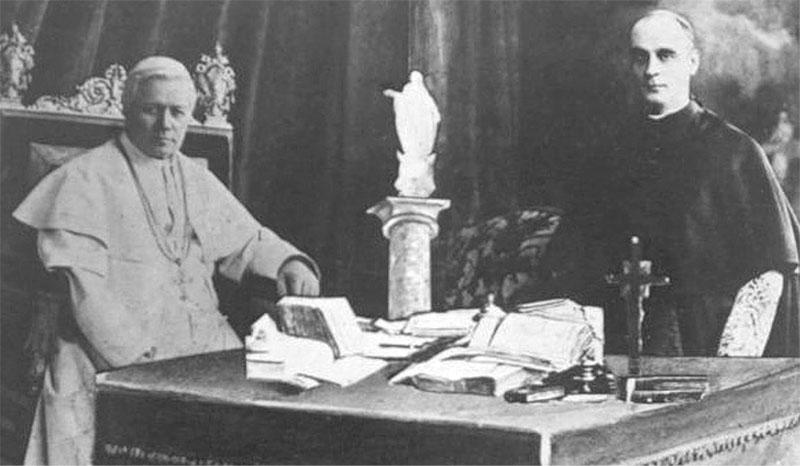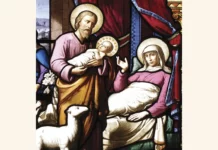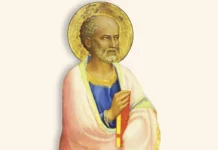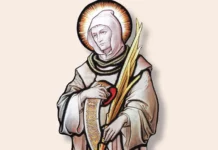St. Pius X’s Secretary of State, Cardinal Merry del Val, was the shield, right arm and close friend of the Blessed Pontiff, as well as a valuable instrument in his hands, in the governance of the Mystical Body of Christ.
Among the many facts related in Sacred Scripture, the special relationship between David and the son of Saul calls attention: “the soul of Jonathan was knit to the soul of David, and Jonathan loved him as his own soul” (1 Sm 18:1). This friendship, difficult to understand for the modern mentality, was entirely supernatural. It was forged in adamantine fidelity and in what we might call mutual vassalage.
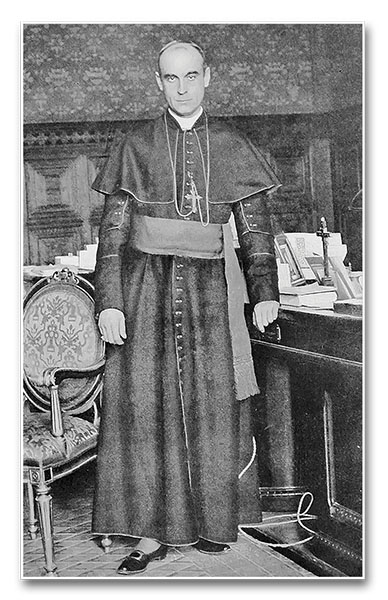
Undoubtedly, something very similar happened in Cardinal Raphael Merry del Val’s life, which could be divided into periods “before Pius X” and “after Pius X”.
The dawning of a great vocation
As was the custom with the noble families of the time, he was baptized with a long name to invoke the protection of numerous Saints: Raphael Mary Joseph Peter Francis Borgia Dominic Gerard of the Blessed Trinity, better known as Raphael Merry del Val, was born in London on October 10, 1865. His parents – Raphael Carlos Merry del Val and Sophia Josepha de Zulueta y Wilcox – left him as a legacy the Irish, English, Scottish, Dutch and, above all, Spanish bloods, the latter from the regions of Andalusia, Aragon and Navarre.
His priestly vocation became evident when he was yet a child. Once, when one of his uncles, the Jesuit priest Francisco Zulueta, asked him what he wanted to be when he grew up, he replied: “A Bishop!”1
Notwithstanding this aspiration, the young Raphael was very fond of sports, such as swimming and tennis, and was drawn to the military life, with a preference for the artillery… He soon found himself faced with a dilemma: which path to choose?
One day, trying to discover if the boy really wanted to embrace the path of the priesthood, his father asked him: “Raphael, what will come of all the sports, hunting and games?” He answered: “Papa, for God one can and must sacrifice everything.”2 With this first renunciation, a decisive step had been taken on the steep stairway of holiness.
With a view to priestly formation, Raphael entered Ushaw College, a seminary in England, at the age of eighteen, to study philosophy. There, he received minor orders in the spring of 1885. Advised by Cardinal Vaughan, Archbishop of Westminster, to continue his studies in Rome, he departed for the Eternal City together with his father.
Invited by the Pope to enter the Pontifical Ecclesiastical Academy
Hearing of the arrival of Ambassador Merry del Val and his son in the Eternal City, Pope Leo XIII expressed his wish to receive them in audience. At that first meeting he showed great predilection for the young Raphael, inviting him to study at the Academy of Ecclesiastical Nobles. This institution, now called the Pontifical Ecclesiastical Academy, is the Vatican’s diplomatic school, where those who will serve the Holy See in the nunciatures and other eminent representative offices are prepared.
The ambassador, thinking that the step that Leo XIII was asking of a young man of just over twenty years of age was too bold, tried to dissuade the Pontiff, but without success. In view of the arguments presented, the Pope simply replied: “Let me tell you, Mr. Ambassador, that from this moment on, Raphael is not only your son, but also Ours. And it is Our wish that he attend the Academy.”3
And if that were not enough, he then sent him a message: “Whoever comes to Rome must obey the Pope, otherwise, it is better to leave…”4 Thus the young clergyman – the only non-priest of the Academy of Ecclesiastical Nobles – continued his studies there.
However, Leo XIII’s predilection did not stop with this gesture. Two years later, at the age of twenty-two, Raphael received the title of Monsignor, even before he became a priest, and began to dress like the Bishops, with the exception of the zucchetto, pectoral cross and ring.
From then on, the very young Msgr. Merry del Val began to undertake several diplomatic trips.
“Nothing could be so contrary to my aspirations…”
In 1888, he receives the deaconate and then priestly ordination at the age of twenty-three. Both ordinations are conferred by Cardinal Lucio Parocchi, the same one who had some years before consecrated Msgr. Joseph Sarto, the future St. Pius X, as Bishop of Mantua.
The new priest hopes to fulfil his great desire to dedicate himself entirely to the apostolate by assuming the care of some parish in England, where he longs to work for the conversion of those who have separated themselves from the See of Peter. However, he will be asked to make one more sacrifice, one more step on the stairway to sanctity…
Leo XIII wishes him to continue in diplomatic life. To this end, he appoints him as Papal Chamberlain and Domestic Prelate of His Holiness, as well as entrusting him with important duties, such as that of Pontifical Delegate on a trip to Canada, at the age of only thirty-two. Shortly after returning from this mission, he is ordained bishop and is appointed as president of the Academy of Ecclesiastical Nobles, where years before he had completed his studies. At the age of thirty-five, Merry del Val will become Archbishop!
At that time, he wrote a letter to a friend in which his humility and unpretentiousness clearly appear, in spite of so much glory: “Nothing could be so contrary to my aspirations… I would have thought that Our Lord would grant the grace to call me to Himself before sending me this…”5
The famous Litany of Humility, written in English and attributed to him, also serves as a testimony to this attitude of soul.
Not even death will separate us!
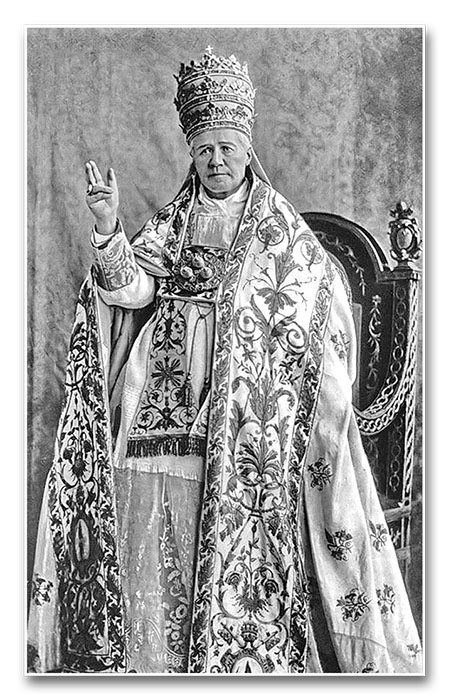
It is August of 1903. The cardinals are gathered in Rome. Leo XIII, to whom Archbishop Merry del Val owes so much, has just passed away. Chosen as secretary and organizer of the conclave, it is his duty to maintain communication with the Princes of the Holy Church and to collect their votes.
After a few scrutinies, the choice falls to the Patriarch of Venice, Cardinal Joseph Sarto. However, the cardinal is reluctant to accept… And time is passing.
The Cardinal Dean gives Archbishop Merry del Val the task of going to Cardinal Sarto and obtaining a definitive answer on his acceptance or, perhaps, refusal of the Papacy.
He goes to the Pauline Chapel and finds Cardinal Sarto kneeling before the picture of the Mother of Good Counsel, with his head between his hands and his elbows resting on a wooden bench. While the secretary explains the situation, tears run down the Cardinal’s cheeks. The only words that Archbishop Merry del Val manages to pronounce after explaining that he needs an answer are: “Courage, Eminence, the Lord will help you!”6
The next morning, August 4, 1903, white smoke begins to appear before the eyes of all the people gathered in St. Peter’s Square, the bells ring and the proclamation soon resounds: “Habemus Papam!” Cardinal Joseph Sarto had accepted the ministry and chosen the name of Pius X.
That same evening, Archbishop Merry del Val goes to His Holiness’ quarters to obtain some signatures and to take his leave, since he had finished his work as secretary. When the task is finished, the Holy Father says to him: “Monsignor, will you abandon me? No, no! Stay! I have not yet decided anything. I still do not know what to do. At the moment I have no one. Stay with me as Pro-Secretary of State; then we shall see.”7
Two months pass, however, and the new Pope does not choose his Secretary of State… Rumours begin to circulate everywhere: “Who will be the next Secretary of State? Surely” – many say – “it will not be Merry del Val; he is very young, he is only thirty-eight years old!” However, the Pontiff has other ideas… On hearing rumours about his appointment, Raphael tries in vain to dissuade Pius X.
After a work session in October 1903, the Pope hands him an envelope, saying: “Ah, Monsignor, this is for you.” As soon as he leaves the room, Cardinal Mocenni, who is abreast of the new development, approaches him asking if there is any news. Archbishop Merry del Val is puzzled, and when asked if he has received anything, he recalls the envelope. Opening it, he sees that the Holy Father, in his own hand, has asked him to assume the function of Secretary of State and expresses the desire to create him a Cardinal of the Holy Roman Catholic Church.
Back in St. Pius X’s chambers, he tries once again to dissuade him, but receives as a fatherly response words similar to those he himself had proffered two months earlier to Cardinal Sarto – now His Holiness Pius X – before the picture of the Mother of Good Counsel: “We will work together, Monsignor, and together we will suffer for love of the Church.”8
On that day, a friendship was forged which would confront the storm surges of the world, the poison of heresies and the pain of rejection; a union of souls was established which even death would not rend!
“Your Father who sees in secret will reward you”
Whoever has not accompanied a man closely in his everyday life can never claim to know him entirely…
If someone were to gain access to the private life of Cardinal Merry del Val, such a gifted man, born into so well-placed a family and distinguished at such a young age with numerous offices and honorary titles, what would he see?
During his time as Secretary of State, he took care of the goods of the Holy See without ever using these means for himself. Even the mattress on which he rested remained the same for forty years.
When St. Pius X chose him for the cardinalate, he gave him a good sum of money to help with the expenses that the appointment would entail. Cardinal Merry del Val immediately tried to return the sum to the Holy Father, who refused it. He then kept the donation and used it when the opportunity arose, to finance the installation of some water heaters in the Pontifical Palace, for the use of the one who had given him the gift…
In 1914, St. Pius X gave him as his residence the Palazzina of Santa Marta, a small house next to the Vatican Basilica which, though very dignified, was in a rather dilapidated state. To renovate it, he had recourse to his father, so as not to use the means of the Church for himself!
Another very edifying virtue that could be contemplated in him was his care for souls. Let us remember that, as a young man, Cardinal Merry del Val desired to be a parish priest. Although God asked him to renounce this desire, he granted him a small community, of which he would be “the Archangel St. Raphael” and protector: the children of Trastevere, whom he cared for with great love and affection, offering them catechesis, celebrating Masses and hearing Confessions.
His zeal for the Liturgy knew no rest. Having been appointed Archpriest of St. Peter’s Basilica, he endeavoured to officiate and always be present at Masses and in the choir.
Finally, after his death they found a chest in his room containing the cilices and disciplines he had used for mortification, and which bore traces of blood…
His attitude of soul in intimacy, entirely unpretentious, was properly evangelical: “go into your room and shut the door and pray to your Father who is in secret; and your Father who sees in secret will reward you” (Mt 6:6). Cardinal Merry del Val lived in the presence of God!
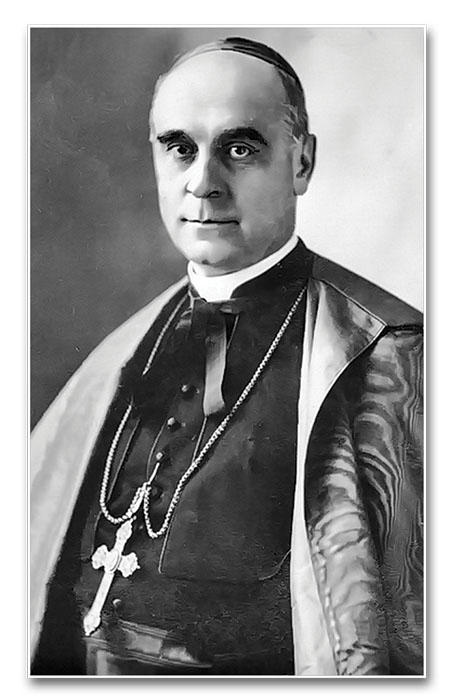
“It is a mourning I will carry with me my whole life”
In August 1914, St. Pius X felt ill. It seemed at first sight to be nothing very serious and, according to the medical diagnosis, after another day he would be completely recovered. However, no one has yet been able to explain the sudden change that took place that night…
In the morning the Holy Father’s state of health was alarming. When he saw his faithful secretary, he squeezed his hand very tightly, only murmuring: “Eminence, Eminence.” And he soon received the last Sacraments. His last words were: “I am entirely resigned.” Soon afterwards he lost the ability to speak, although he remained lucid.
After some time, Cardinal Merry del Val entered the room of St. Pius X again. The latter immediately fixed his eyes upon him and seized his hand, remaining thus for the next forty minutes. Later, the Cardinal would record in his memoirs: “Finally, he let his head fall back heavily on the pillow and closed his eyes. It seemed that he had wanted to say goodbye to me. […] Where are you going, O father, without your son? Where are you going, holy priest, without your minister?”9
It also fell to Cardinal Merry del Val to officiate at the funeral of St. Pius X. After that he withdrew to the solitude of the Palazzina, to the work of the Roman Congregations and his beloved community of Trastevere.
The moment of the reunion!
After the death of St. Pius X, Cardinal Merry del Val placed himself under his protection, becoming the perfect standard of his presence and his ideal of sanctity in the Church.
He spent sixteen years alone on this earth. After all, what other company would be of value once his father, his model, his brother, his guide and his companion was no longer there? But the time finally arrived to meet him again, not in time but in eternity.
Together they had fought and suffered for the Church in life, and their deaths would be similar. Just as Cardinal Merry del Val did not understand what had happened to St. Pius X on the night of his death, the same could be said of us in relation to what happened on that February 26, 1930…
After a habitual day’s work, the Cardinal feels indisposed and the doctors diagnose appendicitis. The very simple operation will be performed at the Palazzina. With complete calm – the accounts say that he was more serene than anyone – he is heard in Confession, receives Communion and goes into surgery. A short while later, the doctor announces that the patient has died…
Raphael Merry del Val had left to be with his Pope, Pius X. In his will he left registered his most ardent longing on earth, no doubt answered by God in His mysterious designs: “I wish to be buried with the utmost simplicity. I ask to be granted that my remains rest as close as possible to my beloved father and Pontiff Pius X, of holy memory… Upon my tomb write only my name, with these words: ‘Da mihi animas, cœtera tolle,’ the aspiration of my entire life…”10 ◊
Notes
1 CHAVEZ, Alberto José Gonzáles. Rafael Merry del Val. Madrid: San Pablo, 2004, p.23.
2 Idem, p.28.
3 Idem, p.31.
4 Idem, ibidem.
5 Idem, p.42.
6 MERRY DEL VAL, Rafael. São Pio X: um Santo que eu conheci de perto. Porto: Civilização, [s.d.], p.14.
7 Idem, p.20.
8 JAVIERRE, José Maria. Merry del Val. 2.ed. Barcelona: Juan Flores, 1965, p.140.
9 MERRY DEL VAL, op. cit., p.145-146.
10 JAVIERRE, op. cit., p.581.


